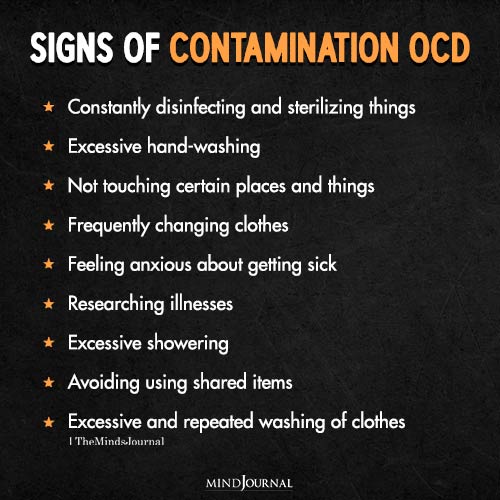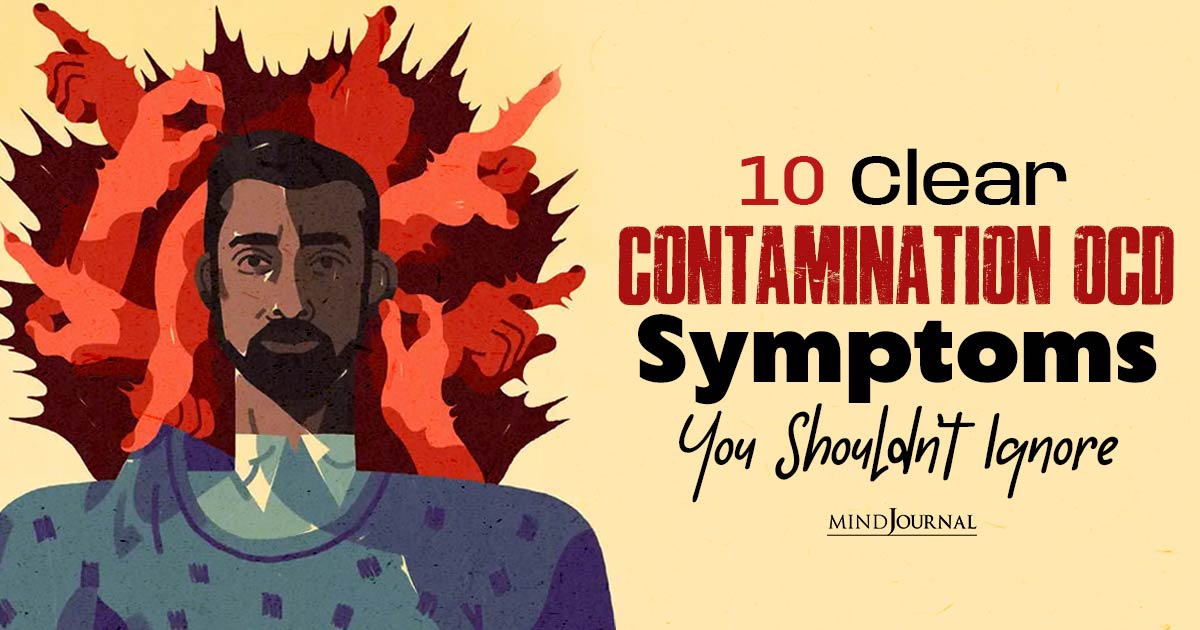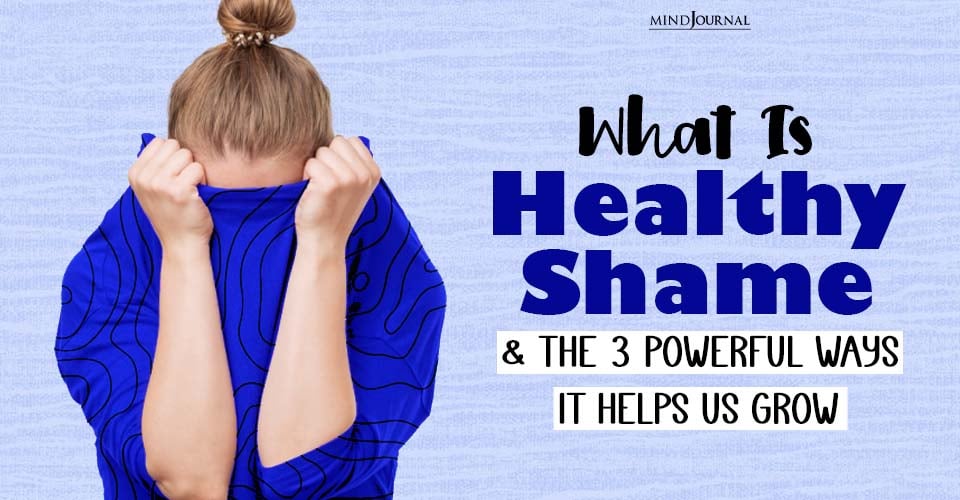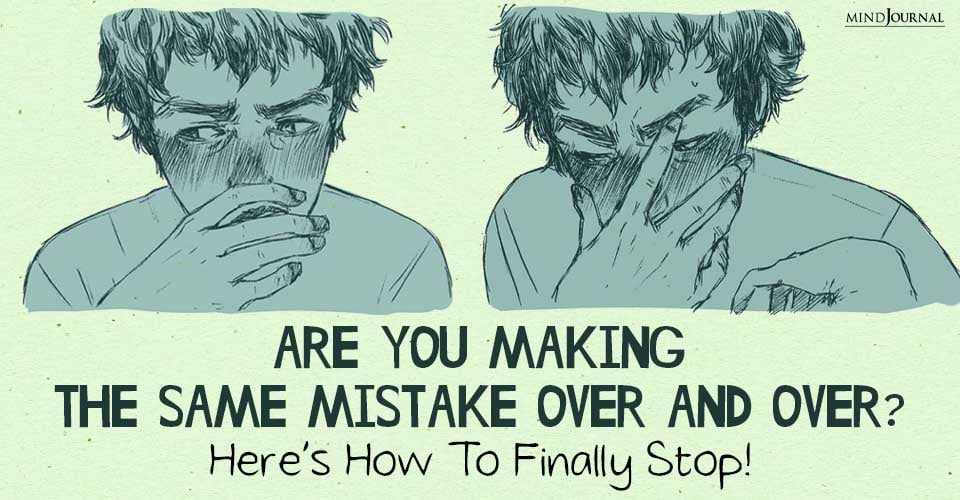Ever feel like you just can’t shake off those nagging thoughts or feeling that something is dirty? Maybe you find yourself washing your hands until they’re raw and bleeding, or avoiding certain places because they don’t feel clean enough. All these signs point to contamination OCD that you didn’t realize you might have.
But fear not, you’re not alone, and there are ways to manage it.
Before we get into the signs and treatment, below are some of the reasons behind what causes Contamination OCD symptoms.
Related: 9 Weird Things Your OCD Makes You Do
What Causes Contamination OCD?
- Biological Factors: Genetic predisposition or brain chemistry imbalances.
- Environmental Triggers: Traumatic events or exposure to illness-related experiences.
- Learned Behavior: Reinforcement of cleanliness rituals or exaggerated hygiene practices.
- Cognitive Factors: Overestimation of threat, irrational fears of contamination, or perfectionism.
- Stress and Anxiety: High stress levels triggering obsessive thoughts and compulsive behaviors
- Personality Traits: Tendencies towards anxiety, sensitivity, or a need for control.
Related: 5 Signs You Might Have OCD (Obsessive Compulsive Disorder)
10 Contamination OCD Symptoms And Signs

1. Never-Ending Hand Washing
You touch something – maybe a doorknob or a handrail – and suddenly, you’re convinced your hands are contaminated. You rush to wash them, but no matter how many times you scrub, it never feels like it’s enough. Sound like a regular occurrence? It could be a sign of contamination OCD.
2. Several Avoidance Tactics In Public
Does the thought of stepping into a public restroom send shivers down your spine? Or perhaps you go out of your way to avoid crowded places altogether because you’re afraid of coming into contact with germs. If you find yourself constantly dodging situations that might involve contamination, it could be a red flag.
3. Obsessive Cleaning Spurts
Sure, keeping things clean is important, but when you find yourself scrubbing and sanitizing every inch of your surroundings multiple times a day, it might be a sign that your cleaning habits have veered into OCD territory.
4. Contaminated Thoughts Taking Over
Ever had a harmless thought – like accidentally touching a trash can – spiral into a full-blown panic attack? Contamination OCD has a way of hijacking your thoughts and blowing things way out of proportion.
5. Having Compulsive Rituals
You enter your home and immediately launch into a series of rituals – maybe it’s removing your shoes, washing your hands, and changing your clothes in a specific order. Sound familiar? These rituals might offer temporary relief, but they’re often driven by an underlying fear of contamination.
6. Excessive Use of Gloves or Protective Gear
Gloves aren’t just for doctors and chefs anymore. If you find yourself donning gloves or other protective gear for everyday tasks like opening doors or touching objects, it could be a sign that contamination OCD is calling the shots.
7. Constant Reassurance Seeking
“Is this clean?” “Do you think I touched something contaminated?” Sound like questions you ask on a regular? Seeking reassurance from others about whether something is clean or safe is a common behavior among those with contamination OCD.
8. Overwhelming Fear of Germs
While a healthy dose of germophobia can keep you from getting sick, an overwhelming fear of germs to the point where it disrupts your daily life is a telltale sign of contamination OCD.
9. Mental Contamination
Contamination doesn’t always come in the form of physical dirt or germs. For some people with contamination OCD, the mere thought of being contaminated – even if there’s no physical evidence – can trigger intense distress.
10. Impact On Daily Life
Perhaps one of the most telling contamination OCD symptoms is its impact on your daily life. If your fear of contamination is causing significant distress or interfering with your ability to function at work, school, or in your relationships, it might be time to seek help.
How To Beat Contamination OCD?
Here’s how to beat contamination OCD in 5 simple ways:
1. Find Your Triggers: Discover the things that cause your contamination fears.
2. Dispute Irrational Thoughts: Challenge the awful thoughts you have and realize they’re probably fake or exaggerated.
3. Exposure Therapy: Begin to slowly expose yourself to situations or objects that make you anxious. Start off easy, then make your way to tougher scenarios.
4. Stay In The Moment: Learn how to meditate so you can stay present. Manage anxious thoughts without them controlling what you do.
5. Talk To A Pro: Mental health professionals can give tips and support tailored to your specific needs.
Related: 5 Signs You Might Have OCD (Obsessive Compulsive Disorder)
Contamination OCD isn’t just being a germaphobe. It’s a mental illness that can heavily impact your life. If you see any signs of someone having this, remember there are treatments that can help.
No one should have to live like that so reach out and seek support if you need it. You deserve to feel free from the grip of contamination OCD.
Disclaimer: This article is for informational purposes only and is not intended as a substitute for professional mental health advice, diagnosis, or treatment. While we strive for accuracy, we do not guarantee the completeness or reliability of the information provided. Readers should always seek guidance from a qualified mental health professional for any concerns regarding their mental well-being.










Leave a Reply